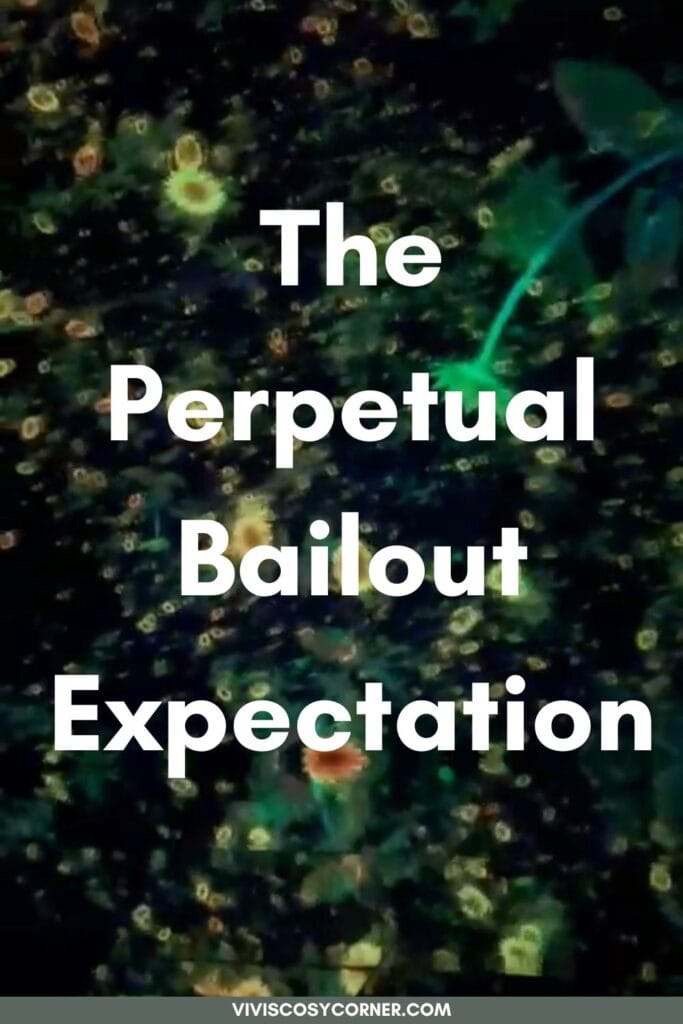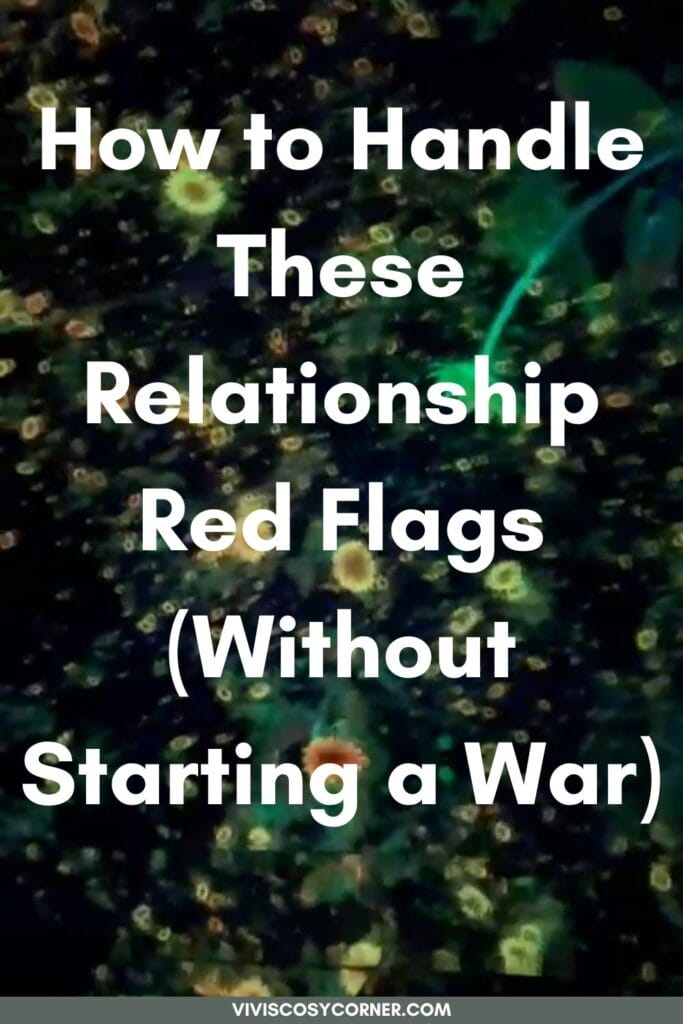A dealbreaker is defined as a non-negotiable issue or behaviour that, if present, makes a relationship (romantic, professional, or otherwise) unsustainable. No matter how strong other aspects may be, it’s the line in the sand that, once crossed, ends things.

Money isn’t just spreadsheets and bank balances, it’s a mirror of our values, habits, intentions, and unspoken expectations. Like the sound of water slowly dripping in a quiet house, financial tension doesn’t always scream. But it seeps. It builds. Until suddenly it floods.
If love is the heart of a relationship, money is the pulse. Invisible, but always there affecting every choice, every decision, every plan, every next step. Yet, too often, couples dance around financial conversations until small cracks become gaping rifts. Love may blur the warning signs, but silence won’t erase them.
Financial harmony doesn’t mean perfect agreement, it means facing the tough talks before they turn into tidal waves of resentment. Think of money talks as the roots of a thriving relationship. Without them, even the strongest bonds can wither under the weight of assumptions and unmet expectations.
Every lasting relationship has its storms. But couples who navigate them with honesty and courage don’t just survive, they grow stronger.
Let’s talk about the financial dealbreakers we too often ignore, the hard limits that protect your emotional and financial well-being, that deserve our attention. Because the best relationships aren’t those without conflict, but those where both partners choose to face it together.
The Hidden Financial Dealbreakers

They Dodge Every Money Conversation
If your partner winces, walks away, or flat-out refuses to talk about finances, that’s a red flag. Don’t brush it off. Avoidance might hide deeper issues: debt, fear, reckless spending shame, or simply inexperience or lack of financial planning.
But whatever the reason, transparency is the first building block of trust and key to a healthy relationship. Money talks don’t have to be uncomfortable; they should be a shared effort to build a stable future together.
“Let’s figure this out together. How can we find a balance that works for both of us?” is a better place to start than silence.

The “Buy Now, Worry Later” Habit
Spontaneity can be charming. Living in the moment is great, until it leads to maxed-out credit cards and financial instability.
If your partner constantly prioritizes short-term pleasure over long-term security, it’s not just about their choices, it’s about the consequences you might inherit.
You deserve to feel secure, not strapped.

Secret Spending or Hidden Debt
Money secrets are like termites: quiet, invisible, but capable of eroding the foundation. Whether it’s hidden credit cards, payday loans, or “forgotten” bills, dishonesty in finances mirrors dishonesty elsewhere for example emotional dishonesty. I have witnessed the breakdown of three marriages for this reason alone.
There is evidence that the misalignment in the financial goals drives lower relationship satisfaction.
Honesty is non-negotiable. Trust, once cracked, is hard to patch. If your partner is struggling with this, it’s time for a serious conversation where you start with clarity.

No Savings. No Plan. No Intention to Start.
Life is unpredictable, and throws curveballs. A flat tire. A job loss. An unexpected move. A financial safety net is essential.
If your partner dismisses the importance of saving or doesn’t see why an emergency fund matters, you may find yourself carrying the load when things get tough and unexpected expenses arise.
Ask “How do you think about saving for the future?” opens the door to understanding rather than shutting it down with criticism.
A little preparation goes a long way. Together.

The Perpetual Bailout Expectation
We all fall sometimes. That’s human. Do they frequently rely on family, friends, or even you to cover their financial mistakes?
While everyone hits rough patches, a pattern of irresponsibility is a major warning sign. A healthy partnership should be about teamwork, not one person constantly cleaning up the other’s messes.
When this happens, you are not in a partnership. You’re in a rescue loop. Love supports. It doesn’t enable.

Guilt-Tripping You Into Funding Their Lifestyle
Love doesn’t come with a price tag, and is not a financial transaction. If your partner pressures you into spending more than you’re comfortable with, or uses guilt to get you to cover expenses, it’s time to step back.
Financial manipulation isn’t generosity. It’s control in disguise.

They Dismiss Your Financial Dreams and Goals
You want to buy a home. Save for travel. Build a business. Work toward early retirement. Or pay off debt.
If your partner shrugs off your goals, jokes about your “budgeting obsession,” or mocks your vision for the future, that’s not alignment. That’s resistance.
Healthy relationship works best when both people are aligned on what financial success looks like. Shared futures begin with shared respect.

They Keep Financial Secrets
Hiding purchases, lying about income, or opening secret accounts? These behaviours signal deeper issues of trust and respect. Financial infidelity can leave you carrying not just emotional betrayal, but legal debt, especially in marriage.
The breach of trust and lasting financial impact can, in some cases, be more damaging than romantic or sexual infidelity.

They Don’t Respect Boundaries
Financial boundaries are like fences around a garden. They protect what matters.
A healthy relationship entails respecting each other’s financial boundaries. It doesn’t rush. It respects your pace.

They Have A Scarcity Mindset That Holds You Back
Frugality is smart. Living in constant fear of spending, refusing to invest in your future, or resisting opportunities due to money anxiety? That’s different.
If your partner’s money mindset stems from fear rather than wisdom, it could stifle your growth, emotionally and financially.
Money isn’t the enemy. The fear of not having enough can be.

Related Posts:
- 104 Best Money Quotes to Inspire Your Financial Journey
- 20 Best Personal Finance Books You Need To Read
- 12 Tips on How to Improve Your Relationship with Money
How to Handle These Relationship Red Flags (Without Starting a War)
- Start the Conversation Early: The earlier, the better. Instead of passing judgement, approach the discussions from a place of curiosity. Start talking values before talking spreadsheets. For each of you, what does “financial security” mean? Instead of blaming others, using the pronoun “we” keeps the conversation cooperative rather than combative. Discuss your expectations., values, and financial goals.
- Watch for Patterns, Not Perfection: Everyone makes money mistakes. The issue is when they become habits as they show repetition without reflection.
- Set Clear Boundaries: Your “no” is a sentence. You don’t need to justify discomfort. If something makes you uncomfortable, speak up. Compromise shouldn’t mean sacrificing your financial well-being.
- Seek Professional Help If Needed: Sometimes, a financial coach or counsellor can help translate silence into solutions. They can help navigate tough money conversations and create a plan that works for both of you.
Money Reveals, It Doesn’t Create
Money won’t make a great relationship, but it can quietly unravel one that lacks trust. The strongest relationships don’t avoid tough conversations, they grow through them.
When both partners feel seen and valued, money talks shift from conflict to collaboration, becoming a joint journey rather than a source of tension.
When both partners feel seen, respected, and financially aligned, something magical happens:
- Stress drops.
- Trust grows.
- And the future starts to feel like a shared dream.
Because love alone isn’t enough. Respect, honesty, and shared values are what truly build a life together.
What’s one financial lesson a relationship has taught you, either the hard way or the heartwarming way?
Drop your story in the comments. Someone needs your thoughts and experience.
Thank you for being a VCC reader.

